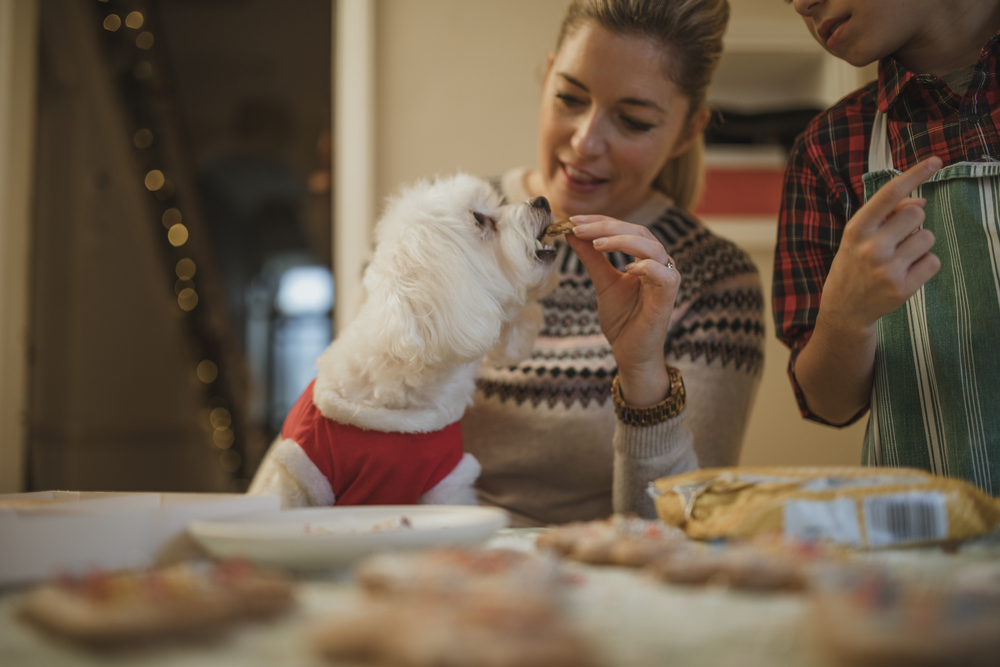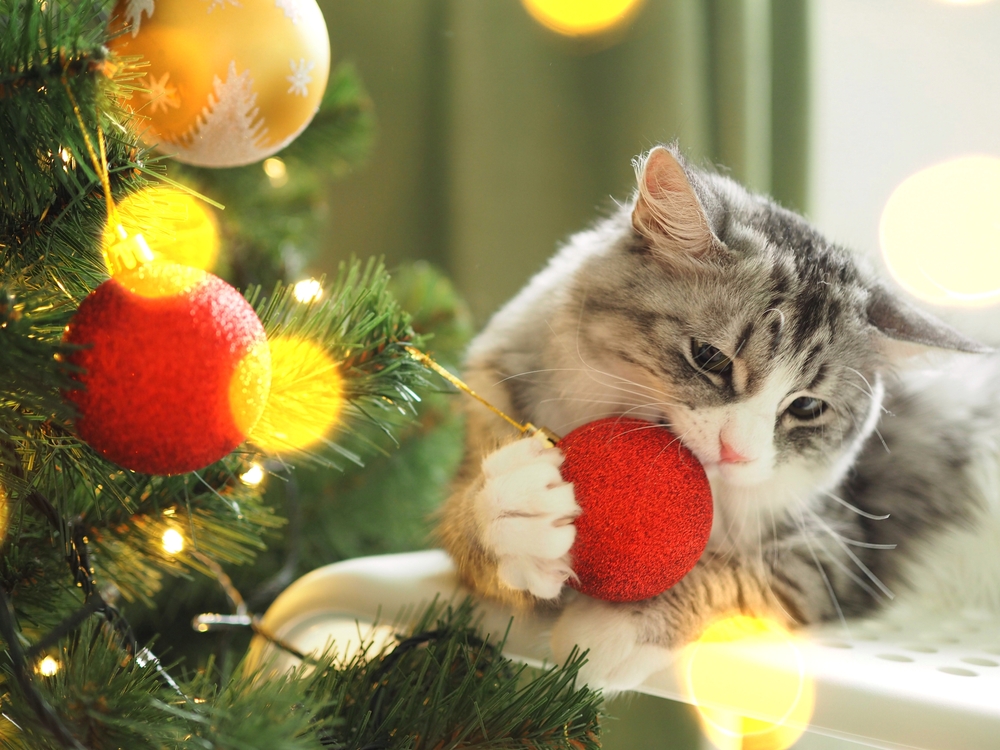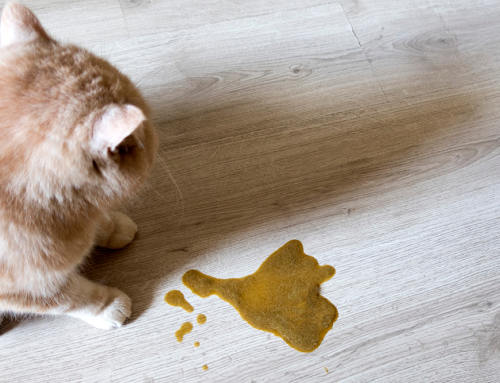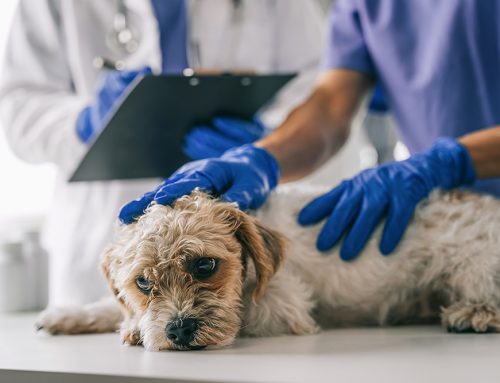The holiday season is full of wonder, but you shouldn’t have to wonder why your pet needs urgent or emergent veterinary care at Wellness Animal Hospital or a nearby emergency center. Avoid a hair-raising holiday with your pet by following our simple tips.
#1: Make your list, check it twice, and ensure it includes your pet
Holiday plans typically include everything from the menu and gifts, to group activities and travel arrangements, but these Santa-worthy lists should also include your pet. Neglecting to plan for your pet’s needs and safety can spell holiday disasters, so take a few minutes to ensure your pet is prepared for whatever the holiday brings. Considerations include:
- Boarding — Ensure your pet has all the necessary vaccinations, records and paperwork, and belongings for their stay.
- Travel — Confirm your transportation and destination are aware that you’re traveling with a pet and that you’ve packed any necessary pet health certificates and vaccine records.
- Guests — Plan how you’ll confine or separate your pet from the holiday excitement if your pet becomes stressed and nervous or boisterous around children.
- Holiday dinner — Decide where your pet will stay during the preparation and eating of the holiday meal. Consider how you’ll keep them from disturbing guests or getting into trouble (e.g., stealing trash, counter-surfing for food).
#2: Fa-la-la follow your veterinarian’s recommendations for easing pet stress and anxiety
Not all pets enjoy the holidays. If your pet needs medication to ease their anxiety, stress, or motion sickness, ensure you refill their prescription or speak to your Wellness Animal Hospital veterinarian as soon as possible. Last minute shopping may reap some great retail bargains, but you’ll likely find yourself empty-handed if you wait too long to request your pet’s medication.
#3: Hang stockings, and other decor, out of your pet’s reach
Holiday decorations add to the festivities, but they can also create chaos for curious pets. Keep your pet and your decked halls safe by decorating with your pet’s welfare in mind, which includes:
- Replacing traditional candles with battery operated votives
- Removing pet-toxic greenery, including yew, mistletoe, and lilies
- Displaying fragile items and heirlooms in a glass cabinet or high shelf
- Placing special ornaments on higher tree branches
- Covering holiday lights with a cord protector to minimize shock risk
#4: Going over the river and through the woods? Travel safely with a pet crate or seatbelt
Unrestrained pets are a serious driving risk. Not only do loose pets distract the driver and passengers, but they can also become dangerous projectiles during an accident. Also, unsecured pets are more likely to slip through an open door or window and be hit by another car or run off and become lost.
Protect yourself and your two- or four-legged family, as well as other travelers, by confining your pet to a secure crate, carrier, or pet seat belt. These are simple and affordable tools that can ensure a smooth ride for everyone on the road.
#5: Protect your fir from furry pet threats
Real or artificial, many dogs and cats can’t resist a holiday tree—especially when it’s decorated with sparkling lights and toy-like ornaments. Always supervise your pet near the tree and minimize their injury risk with these precautions:
- Stabilizing the tree — Jumping and climbing pets can easily overpower and send a holiday tree crashing to the ground. Secure your tree to anchor points on a nearby wall or the ceiling.
- Restricting access to the tree base — Tree water can contain unhealthy microorganisms and bacteria, causing illness if ingested by pets. Cover your tree base and regularly freshen the water.
- Swapping tinsel for cat-safe alternatives — String-like decorations can form life-threatening intestinal blockages in cats who ingest them, so use wide ribbon or decorative paper chains.
- Unplugging lights — Unplug decorative lights any time you leave the room.
- Installing a temporary fence or pet gate — If your dog or cat simply can’t leave the tree alone, consider installing a temporary fence (e.g., pet exercise pen) around the tree or blocking room access with a pet gate.
#6: Don’t share these holiday foods with your pet

When everyone’s in a giving mood, denying your pet’s begging eyes and pleading paw is difficult, but many holiday favorites are toxic, too rich, or simply dangerous for pets. Hazardous holiday foods include:
- Turkey skin, grease, and pan drippings
- Cured ham
- Meat bones
- Onions, garlic, and leeks
- Raisins and grapes
- Chocolate
- Alcohol and caffeine
- Corn on the cob
- Macadamia nuts
- Sugar-free foods made with xylitol
Pets also find wrappers, packaging, and other trash equally irresistible, but these inedible items often become choking hazards or cause life-threatening internal injuries. Keep all holiday trash in closed containers and out of your pet’s reach, ideally behind a barrier such as a door or gate.
#7: Pet-safe gifts
We know you want to spoil your pet with gifts but, unfortunately, many items sold in stores (e.g., holiday rawhide chews, treats made with dyes and artificial ingredients, small plastic toys) can jeopardize your pet’s health. We recommend safe alternatives, such as veterinarian-recommended dental chews, appropriately-sized rubber toys (e.g., Kong, Goughnuts, WestPaw), and single-ingredient pet treats.
The holiday season is a time for family and friends and you should include your pet, of course, but you must prioritize your pet’s physical and emotional safety, comfort, and health to ensure everyone enjoys the festivities. For additional advice, or to request a medication or food refill, contact the Wellness Animal Hospital team.







Leave A Comment